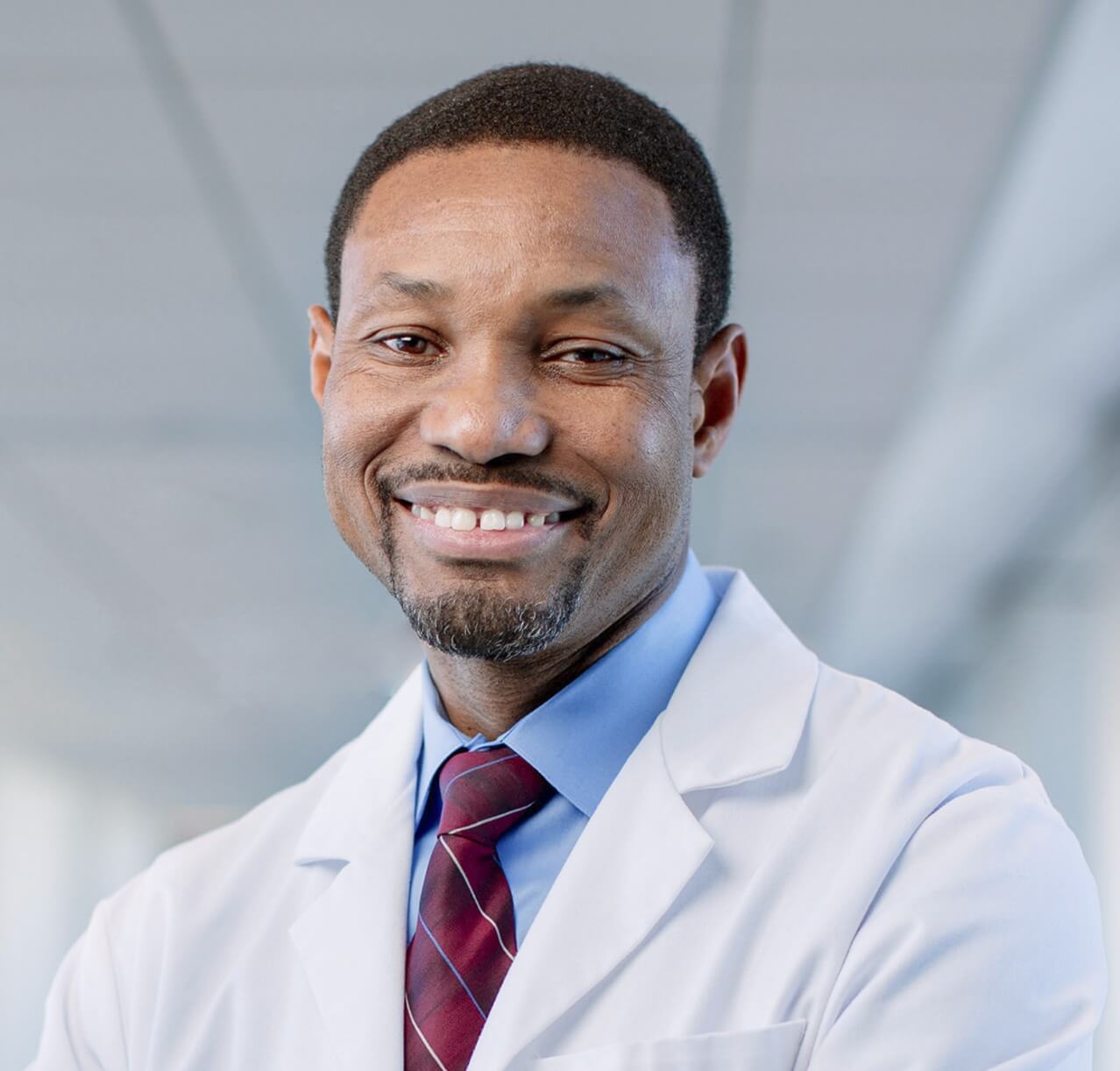Meet Our President
Dr. Lewis R. Robert is currently a full-time professor of medicine in the Division of Gastroenterology and Hepatology at the Mayo Clinic College of Medicine in Rochester, Minnesota, and a liver cancer scientist. He is also a CRCHD grantee, who began his early scientific training some 15 years ago through the CURE program.

Roberts’ journey to become a leading liver cancer researcher began as a young medical student in his native country. Treating a 21-year-old man with a large liver cancer tumor at a Ghana hospital was an indelible experience. “The increased blood flow was so forceful in the tumor, it could be easily heard and diagnosed with a stethoscope,” he says. “But, despite all attempts to treat the patient, the young man died after a month.” In Ghana, hepatitis B and C are prevalent in more than 10% of the population, and liver cancer is a leading cause of death. Roberts never forgot that patient who was about the same age as he was.
During his residency and fellowship at the Mayo Clinic, Roberts began to focus his research efforts on liver cell injury and death, and that interest has carried through to his current work on liver cancer. When it comes to research, “it’s definitely the aspect of discovery that I love,” he says. “Research provides me with the opportunity to discover new things and then directly translate them to patient care.”
Since 1999, Roberts has successfully applied for government grants from NIH and NCI, and has received a K08, two R01s, an R21, a U56, and a number of CURE Diversity Supplements. The awards have made a huge impact on his career, he says, and without the funding, his laboratory would not have been able to survive. These awards and supplements have supported studies of the regulation of the tumor microenvironment in liver cancers.
This funding has also supported the training of several young investigators at various levels of education from populations underrepresented in cancer research. “It’s a particular interest of mine to increase the diversity of Mayo’s pool of researchers because of the added perspectives that come to the field of medical research and also the added value these perspectives bring to our patients,” says Roberts.
“The goal of my laboratory is to understand the mechanisms by which liver cancers develop, grow, and spread,” says Roberts. “By identifying the critical pathways needed for the growth of individual cancers, targeted treatments can be designed to give the patient maximum effectiveness with minimal side effects.” Roberts’ lab is also focusing on developing biomarkers and clinical tests to improve methods of early detection, diagnosis, and treatment of liver, biliary, and pancreatic cancers.
Liver cancer causes about 700,000 deaths each year, and its incidence in the U.S. has tripled over the past 30 years. Except in the very earliest stages of this cancer, current treatments have not been very effective.
Liver cancer patients are typically in their 50s and 60s, says Roberts, since it can take 20-30 years for cancer to develop after a person is infected with the hepatitis B or C virus. However, immigrants from Africa or Asia who were infected with hepatitis B or C at a young age can develop liver cancer as early as their 20s and 30s.
Born in Kumasi, Ghana, Roberts earned his medical doctor degrees (M.B. and Ch.B., the British, Irish, and African equivalents of the North American M.D. degree) from the University of Ghana Medical School, in Accra, in 1982 and his Ph.D. from the University of Iowa in 1992. He completed his medical residency in internal medicine at the Mayo Clinic in 1995 and his fellowship in gastroenterology at the same institution in 1998.
In addition to his role at Mayo Clinic, Roberts also serves as President of Africa Partners Medical, a nonprofit organization focused on improving healthcare delivery in Africa through medical education, practical skills training, and provision of medical equipment and supplies.
